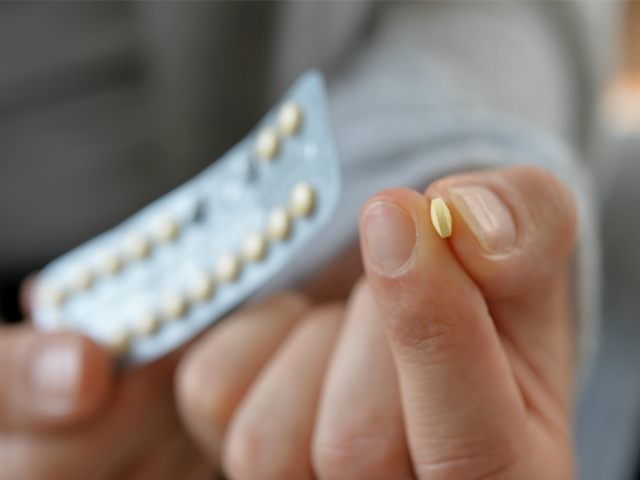A study published in the Journal of the American Medical Association (JAMA) finds that the pill and other forms of hormonal contraception are linked to depression, especially in adolescents.
In introducing the correlational study, the authors especially note that insufficient research has been done to assess the relationship between hormonal contraception and depression:
“Millions of women worldwide use hormonal contraception,” the researchers say. “Despite the clinical evidence of an influence of hormonal contraception on some women’s mood, associations between the use of hormonal contraception and mood disturbances remain inadequately addressed.”
The authors conducted a nationwide cohort study of data for 1,061,997 Danish women and adolescents, aged 15 to 34 years, to determine if the use of hormonal contraception is linked to subsequent use of antidepressants or depression diagnosis. The women were assigned to two different groups: users and nonusers of hormonal contraceptives. They were followed for 13 years and data regarding any depression diagnoses and prescriptions for antidepressant medications were collected from the period of January 1, 1995 to December 31, 2013, and analyzed.
Results showed that, compared to nonusers, women who used the commonly prescribed combination birth control pills – containing both estrogen and progestin – were 23 percent more likely to have been prescribed an antidepressant. Users of the progestin-only birth control pill were 34 percent more likely to be described an antidepressant.
Other forms of hormonal birth control showed a link to even higher risks of depression diagnosis. Compared to women not using contraception, for those using progestin-only IUDs (levonorgestrel), the rate of antidepressant prescriptions increased by 40 percent. For women using a vaginal ring (etonogestrel), antidepressant prescription increased by 60 percent, and up to 100 percent for women using a hormonal patch (norgestrolmin).
The authors note that teen girls were 80 percent more likely to be prescribed an antidepressant when also prescribed the combination birth control pill, and 120 percent more likely when using progestin-only pills. Additionally, the risk for teens using non-oral hormonal contraception tripled.
“Use of hormonal contraception, especially among adolescents, was associated with subsequent use of antidepressants and a first diagnosis of depression, suggesting depression as a potential adverse effect of hormonal contraceptive use,” the study concluded.
The authors say that while the study’s large sample size, and the fact that it excluded women with a prior depression diagnosis, are its strengths, they also note that some depressed women are undiagnosed or are not treated with antidepressants. In addition, antidepressants are sometimes prescribed for conditions other than depression.
Lead author Øjvind Lidegaard, MD tells Health.com more research is needed to evaluate whether depression is indeed a side effect of hormonal birth control.
“Women who develop depression after starting on oral contraceptives should consider this use as a contributing factor,” he says, adding that “doctors should include these aspects together with other risks and benefits with use of hormonal contraceptives, when they advise women to which type of contraception is the most suitable for that specific woman.”
Lidegaard continues that teen girls are most vulnerable to the link between hormonal contraception and depression.
“Doctors should ensure that women, especially young women, are not already depressed or have a history of depression,” he says, “and they should inform women about this potential risk.”

COMMENTS
Please let us know if you're having issues with commenting.